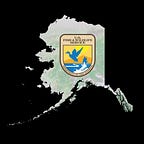Arctic Refuge Virtual Bird Fest
The Loss of Birdsongs
An Elder’s lifetime of observations in Arctic Village, Alaska
Trimble Gilbert is a Gwich’in Athabascan Elder and speaker of Dinjii Zhuh Ginjik, the Gwich’in language. He was born and raised in Arctic Village, Alaska where he currently resides. Trimble shares his observations of birds from over the years, traditional stories told by his Elders, and changes in weather and climate.
Full audio of Trimble Gilbert’s interview:
Click here to listen (read the transcription here).
Juk drink dettit gweedhaa Arctic Refuge (Nijin gwats’an gwandall goodlit) Ginjik tyah Chiitsal gwaheelyaa, izhit geenjit gwilii t’agwahee’yaa, Chiitsal Arctic Refuge gwideek’it gwats’an yeenin 49 Nahkat Gwachoh ts’a’ chuu choh gwataa K;iinin Nahkat daazhyaa goolil datthak chan t’agarahnyaa. Chiitsal nall dinkii Arctic Refuge. Izhit geenjit deeniindhan?
[Translation: This week is the Arctic Refuge Virtual Bird Festival. We are celebrating the birds that travel from Arctic Refuge to the other 49 states and even international countries. Birds connect people to the Arctic Refuge. What does the Arctic Refuge mean to you? What do birds mean to you?]
“I grew up here since 1935, I was born, and then I remember since 1941. I grew up with all the birds we had. Around the middle of May, springtime, they are coming back.
In this country here, we name all of them. We know or recognize them — every one of them when they arrive. How we recognize them is because of how they sing…all a different way. Each bird got their own song and then we know which one is singing.
I was remembering 1941 or ’40, and there’s plenty of birds in this country. So we name each one of them. And they lived with us all summer and they were nesting around here.
The kind of weather conditions — sometimes it’s really strong wind and raining — but we know which dates the birds will arrive in our country.
“The difference now today, is they’ve declined. And, another problem is: birds, they don’t sing anymore.”
They’re kind of pretty quiet and you can see them here and there, I see them here and there, but then they don’t sing.
“Our favorite bird is a robin. There is still a few robins around here, not very many like before.”
And that’s when birds arrive here, we used to live in the tent, out by the lakes and rivers…
We were having hard time sleeping because it was so noisy all night — the birds calling to each other. There’s a male ptarmigan. Usually sits on top of the trees, watching the females nesting. And they fight each other, they go after each other with noise, so it was pretty hard to sleep.
Now, a lot of other animals are declining. For the future, we want to see our children see that: all kinds of birds we have.
“I’m sharing all the things I know, the important things I know, from the stories. I want the world and certain people to, to know, what we know up this way.”
Full audio of Trimble Gilbert’s interview:
Click here to listen (read the transcription here).
Thank you to Trimble Gilbert for sharing his traditional knowledge about the loss of bird song in Arctic Village. Interview by Joanne Bryant, USFWS Tribal Communications and Outreach Specialist. Audio collection and editing by Mason Wheatley and Allyssa Morris. Translation provided by Mildred Allen. Audio music credit: Windswept by Kevin MacLeod (license)
In Alaska we are shared stewards of world renowned natural resources and our nation’s last true wild places. Our hope is that each generation has the opportunity to live with, live from, discover and enjoy the wildness of this awe-inspiring land and the people who love and depend on it.
